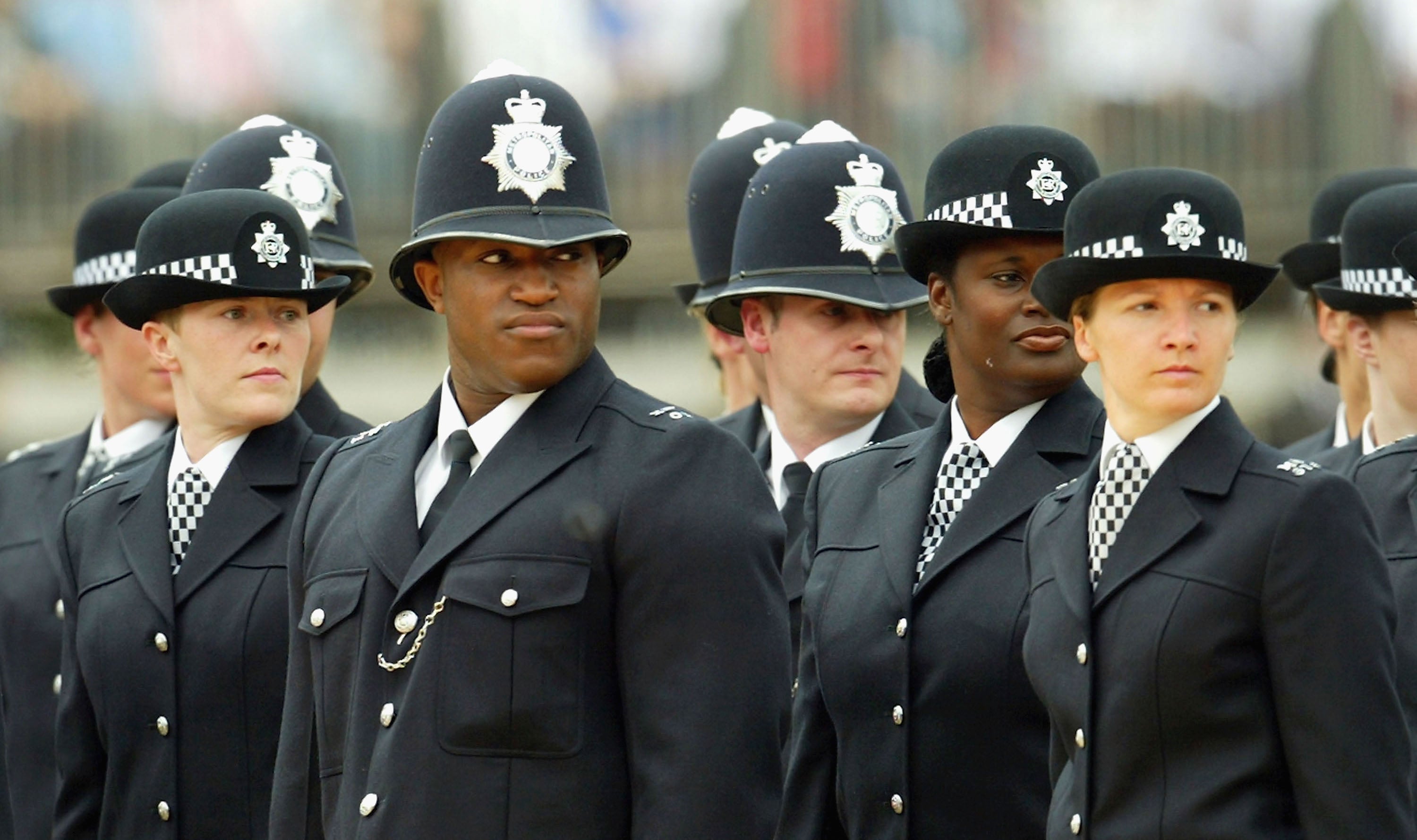Black police officers’ group calls for first boycott of Met in nearly 20 years over racism claims
This is the first call for a boycott in 20 years and comes as low levels of Black, Asian and minority ethnic officers within the force has sparked a recruitment drive.

The National Black Police Association (NBPA) has called for officers from ethnic minority backgrounds to boycott joining the Metropolitan Police over a “racist” misconduct investigation into its chairperson.
In the first call for a boycott in 20 years, the association claims Charles Ehikioya, chair of the Met Black Police Association (Met BPA), has been targeted for voicing concerns about the racism he and his colleagues have endured.
The Met BPA says Mr Ehikioya was racially abused in a WhatsApp group and instead of treating him as a victim, there had been intentional efforts to find evidence of wrongdoing on his part in an effort to undermine his claims.
Comprised of serving ethnic minority officers, the Met BPA has said they have no faith in the misconduct probe and argue it is a thinly-veiled attempt to “remove a voice from within policing from holding the Commissioner to account”.
“The timing of this complaint leads me to believe that there is a desire to remove any dissenting voices from public discourse,” Andy George, president of the NBPA, said.
“Given the crisis in confidence highlighted through so many incidents and reports, I cannot say that we can adequately protect and support officers of colour within the Metropolitan Police Service.
“For that reason, I take the extraordinary step of saying that we no longer have confidence in the commissioner or his senior leadership team to bring about the necessary and promised reforms to the service.
“I also regretfully recommend that anyone from Black, Asian and minority ethnic backgrounds does not join the MPS until there is more rigorous accountability placed on the commissioner and more resources are given to the Met BPA so they can provide wrap-around support to those in need,” the group added.
Th row comes as low levels of Black, Asian and minority ethnic officers within the force have sparked a recruitment drive.
One-fifth of the Met Police’s workforce of over 45,000 officers are from ethnic minority backgrounds, compared to around 46 per cent of London as a whole, according to recent data.
A recent analysis shows that it could take nearly fifty years for the Met Police to reflect London’s ethnic diversity at the current pace of progress.
A review by Baroness Casey, published in March, found the force to be institutionally racist, misogynist and homophobic.
Black officers and staff were 81 per cent more likely to receive a misconduct allegation than their white colleagues, the Casey Review concluded, while Asian workers were 55 per cent more likely and mixed-ethnicity employees were 41 per cent more likely.
Casey found that “allegations against officers and staff of colour might follow when they raise their head above the parapet to call out poor behaviour”.
“This is a pattern embedded across Met culture: speaking out often results in adverse consequences for the complainant,” she added.
Mr Ehikioya, who is based in the professionalism command, could be dismissed if it’s proven that he sent and received offensive WhatsApp messages, as alleged, between 2017 and 2020.
A three-year investigation was carried out by officers from Scotland Yard’s Directorate of Professional Standards.
In July, Mina Smallman, the mother of two murdered sisters, called for more Black officers to be deployed by the Metropolitan Police in local communities.
However, while reacting to the Met BPA’s protest, Ms Smallman said she’s “dismayed that rather than work with the association, the MPS has refused to meet their president and now targeted the chair of the Met BPA”.
The last call for a boycott happened in 2008 after the acquittal on all charges of Superintendent Ali Dizaei over allegations of endangering national security, abusing drugs and using sex workers. Those claims were later found to be untrue.
Mr Dizaei was later convicted of criminal offences, sentenced to prison and sacked from the force in 2012.
Leroy Logan MBE, former Met BPA chair, said: “The MPS has done what it can to prevent the Met BPA from forming and ever since its inception has tried to remove the honest voice of our members from public debate.
“I myself was targeted as chair of the Met BPA so it comes as no surprise to me that they have decided to target the current chair.”
A Met Police spokesperson said: “An inspector will face a gross misconduct hearing following allegations inappropriate WhatsApp messages were sent and received between 2017 and 2020.
“The allegations were reported in December 2020. This followed a referral to the Independent Office for Police Conduct who passed the matter back to the Met to investigate locally.
“A date for the hearing will be set in due course.”
Subscribe to Independent Premium to bookmark this article
Want to bookmark your favourite articles and stories to read or reference later? Start your Independent Premium subscription today.
Join our commenting forum
Join thought-provoking conversations, follow other Independent readers and see their replies